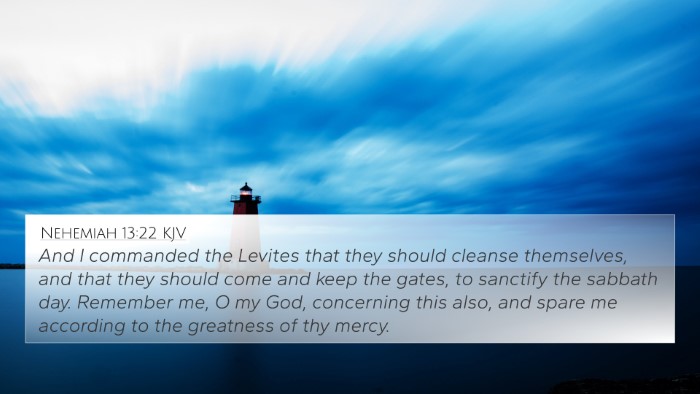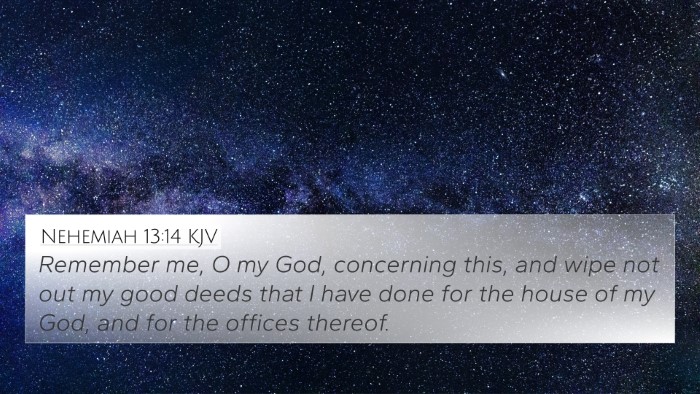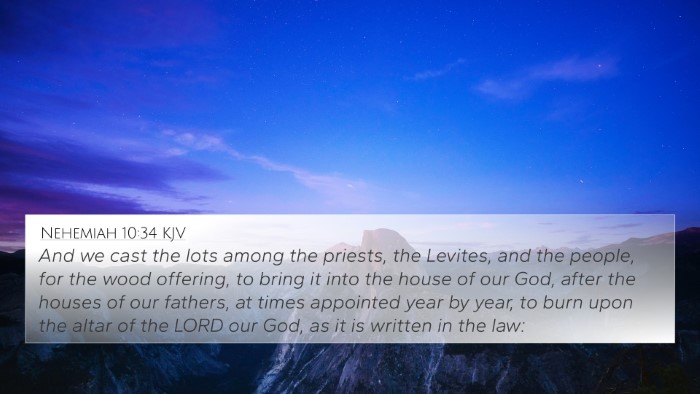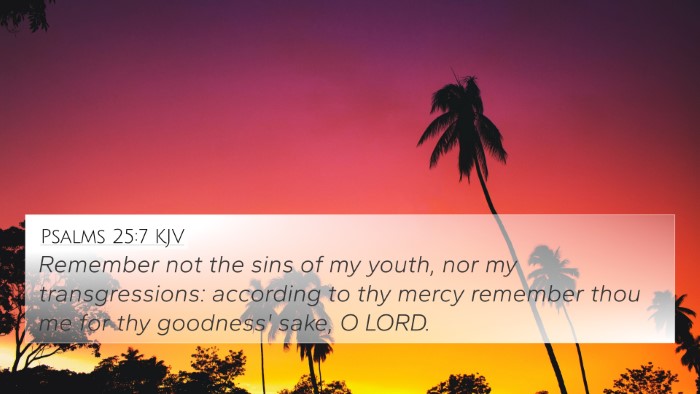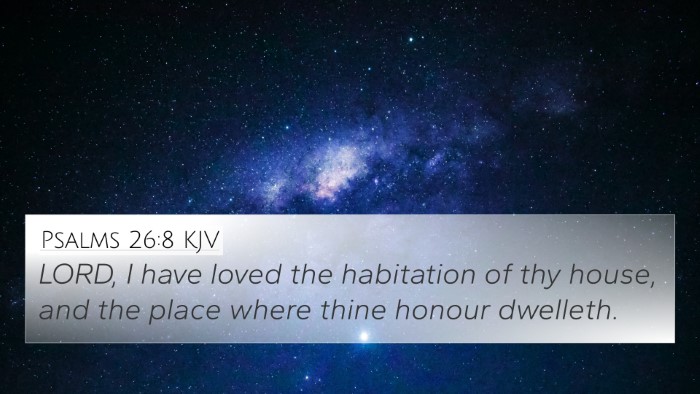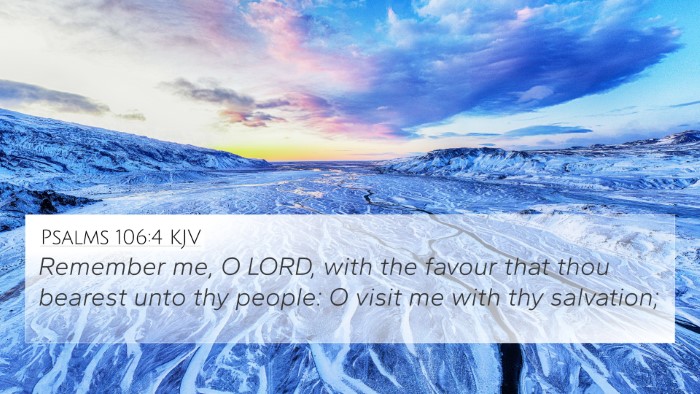Understanding Nehemiah 13:31
The verse Nehemiah 13:31 states:
“And for the wood offering, at times appointed, and for the firstfruits. Remember me, O my God, for good.”
Verse Meaning and Interpretation
This poignant plea at the conclusion of Nehemiah’s reforms reflects his intense desire for divine approval amidst his extensive duties in restructuring the lives of the Israelites post-exile. Each element of this verse encapsulates significant theological and practical insights.
Contextual Analysis
Nehemiah, as a leader in Israel, undertook the monumental responsibility of restoring both the walls of Jerusalem and the spiritual integrity of the community. His mention of offerings speaks volumes about maintaining worship and honoring God through tangible acts of service.
Commentary Insights
-
Matthew Henry:
Henry emphasizes the importance of the wood offering and firstfruits as elements of sacrifice and dedication to God. This signifies a commitment to worship and a reminder of the covenant between God and His people.
-
Albert Barnes:
Barnes notes that Nehemiah’s plea, “Remember me, O my God,” indicates a humble request for favor from God, highlighting the divine-human relationship central to the biblical narrative. It’s a recognition that all efforts need divine backing to be fruitful.
-
Adam Clarke:
Clarke suggests that Nehemiah’s invocation showcases the heartfelt prayers of a leader who seeks righteousness and is dedicated to the ordinances of God in a time of spiritual renewal. Clarke also points to the significance of firstfruits as an acknowledgment of God’s provisions.
Cross References for Nehemiah 13:31
Nehemiah 13:31 connects with numerous other Biblical texts, illuminating various themes of dedication, offerings, and remembrance of God. Here are several related scripture passages:
- Deuteronomy 26:1-2: The offering of firstfruits as part of the law.
- Malachi 3:10: The call to bring tithes and offerings into God’s storehouse.
- 2 Chronicles 31:5-10: The people bring their firstfruits abundantly.
- Psalms 106:4: A request for God to remember His people for good.
- Luke 12:33: Guidance on making offerings that last in heaven.
- Romans 12:1: Presenting our bodies as living sacrifices, holy and pleasing to God.
- Hebrews 13:15-16: The importance of sacrifices of praise and good deeds.
Thematic Connections
Nehemiah’s request highlights several themes worthwhile for deeper exploration:
-
Divine Remembrance: Echoed in Psalms and throughout scripture, the notion of God remembering His people is foundational.
-
Leadership and Responsibility: The burden upon leaders to guide their communities in spiritual matters.
-
Worship as an Act of Thankfulness: The importance of dedicating our resources as an expression of gratitude to God.
-
Restoration and Renewal: Themes of revival of the spirit and community, captured throughout Scripture in Nehemiah's journey.
Tools for Bible Cross-Referencing
To deepen one’s understanding, utilizing tools for Bible cross-referencing becomes essential:
- Bible Concordance: Helps in finding specific words and themes across scripture.
- Bible Cross-Reference Guide: Provides insight into how different verses correspond to each other.
- Cross-Reference Bible Study: A method to study by comparing similar passages.
Conclusion
This brief study of Nehemiah 13:31 illuminates the depth of the scriptures through interconnectedness. Understanding such passages not only enriches personal faith but also encourages a comprehensive study that reveals the inseparable links between biblical texts.
Engaging in comparative Bible verse analysis allows readers to appreciate the intricate dialogues that weave throughout the Old and New Testaments, highlighting the continuity of God's promises and the expectations upon His people.



